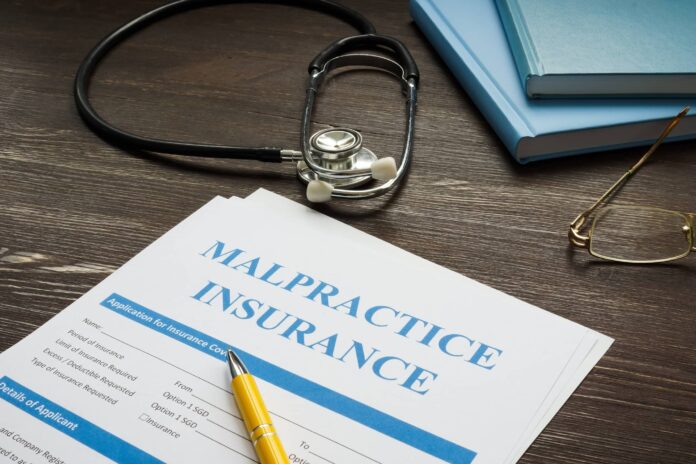When grief descends upon a family following an unforeseen loss, the possibility of a wrongful death claim often looms in the aftermath. These claims, particularly within the healthcare sector, have significant consequences that resonate beyond the immediate parties involved. Georgia, like many states, has intricate laws governing these claims, which invariably influence the operation and conduct of healthcare providers.
Wrongful death laws in Georgia

In the state of Peach and Magnolias, wrongful death claims are governed by Georgia’s civil code. These legal rules apply when a person’s demise is precipitated by another’s negligent, reckless, or criminal act. In the realm of healthcare, this typically arises when a healthcare provider, such as a doctor or a nurse, fails to exercise a reasonable degree of care and skill in patient treatment. Lawrenceville wrongful death lawyer can help if you have the misfortune of being involved in a case like this.
Georgia’s wrongful death statutes dictate who can bring a lawsuit and what types of damages they can recover. Typically, the deceased’s spouse or children can bring the claim. If neither exists, then the parents or the representative of the deceased’s estate can bring forward the claim. Recoverable damages often include lost wages and benefits, loss of companionship, and medical and funeral expenses, with the possibility of punitive damages if gross negligence is proven.
Financial impact on providers
A wrongful death claim can result in financial strain for the providers, particularly if they lack adequate malpractice insurance. Successful claims lead to sizable compensation payouts, which often reach six or seven figures. Such large disbursements can strain a healthcare provider’s financial health, potentially leading to bankruptcy in extreme cases.
Notwithstanding the potential for enormous compensation payouts, the legal costs associated with defending these claims are equally daunting. Hiring expert witnesses, collecting and reviewing medical records, and legal fees can quickly add up, imposing additional financial burdens. This financial pressure can further strain an already stretched healthcare system, leading to potential reductions in patient services or even facility closures.
Medical malpractice insurance and premiums

One solution to mitigate the financial impact of wrongful death claims is malpractice insurance. However, this does not come without its challenges. When claims rise, insurers often hike up premiums, requiring healthcare providers to pay more to protect themselves from potential lawsuits. This, in turn, increases the operational costs, further pressuring their financial resources.
Healthcare providers who experience multiple claims or high-profile lawsuits may find it difficult to secure malpractice insurance at all. This lack of insurance could leave them vulnerable to the potentially devastating financial impact of a successful wrongful death lawsuit. Thus, while malpractice insurance can shield providers from some risks, it introduces additional complexities and challenges to their operations.
Emotional and psychological impact on providers
Beyond the tangible financial effects, wrongful death claims often impart a heavy emotional and psychological toll on healthcare providers. A claim implies a failure in their duty of care – a stark contrast to their mission of preserving life and health. This dissonance can lead to feelings of guilt, anxiety, and distress, collectively termed ‘second victim syndrome.’
These emotional repercussions can spiral into more severe issues, such as depression, burnout, and even suicidal ideation. Such adverse outcomes not only affect the individual healthcare providers but also impact the overall quality of care they can provide, ultimately affecting patient outcomes. Thus, the human toll of wrongful death claims is just as significant, if not more, than the financial implications.
Changes in practices and protocols

In response to the surge in wrongful death claims, healthcare providers have had to adapt their practices and protocols. Some providers have turned to practicing defensive medicine, ordering unnecessary tests and procedures to protect themselves from potential litigation. While this might lower the risk of a lawsuit, it also escalates costs and exposes patients to unnecessary risks.
At the same time, healthcare providers are focusing more on risk management, enhancing training, and streamlining processes to prevent errors. This emphasis on quality and safety can improve patient outcomes and reduce the occurrence of incidents that could lead to wrongful death claims. However, it also requires significant investment in time and resources, which can be challenging for smaller healthcare providers.
Importance of communication and informed consent
In the context of mitigating wrongful death claims, the importance of effective communication and informed consent cannot be overstated. A substantial number of malpractice claims arise from miscommunication between healthcare providers and patients. Ensuring that patients understand their treatment options, and the associated risks, and allowing them to ask questions can significantly reduce misunderstandings and potential claims.
Furthermore, obtaining informed consent from patients before any treatment or procedure is paramount. This not only ensures that patients are aware of potential risks but also provides a legal safeguard for healthcare providers. However, securing true informed consent requires dedicated time and clear communication – resources that are often stretched thin in a busy environment.
Legal defense costs and strategies

Contesting wrongful death claims is not just a financial exercise; it is also a tactical one. Successful defense strategies require expert legal counsel and a well-crafted defense. This can involve engaging top-notch medical experts, exhaustive reviews of medical records, and sophisticated legal maneuvering. However, these strategies are expensive and can drain healthcare providers of valuable resources.
Despite the high cost, an effective defense strategy is crucial. It not only prevents substantial compensation payouts but also shields the healthcare provider’s reputation, which can be significantly damaged by a wrongful death claim. Therefore, the value of an excellent legal defense extends beyond the courtroom and into the court of public opinion.
Impact on reputation and patient trust
A wrongful death claim casts a long shadow on a healthcare provider’s reputation. Regardless of the outcome, the mere existence of a claim can foster doubt in the minds of current and potential patients. A tarnished reputation can lead to a loss of patient trust, which is the cornerstone of any healthcare provider’s practice.
Over time, this erosion of trust can result in a decrease in patient numbers, further straining the healthcare provider’s financial resources. Restoring trust and reputation is a long and arduous journey, requiring a consistent track record of safe practice and open communication with patients. However, even then, the damage may be irreversible for some patients.
Final thoughts
Wrongful death claims weigh heavily on healthcare providers in Georgia. They ripple through the industry, influencing financial stability, mental well-being, and operational practices, while threatening patient trust and the reputation of healthcare providers. To navigate this labyrinth, providers need to adopt effective risk management strategies, maintain open communication with patients, and ensure robust legal defenses. Despite the daunting task, these measures can go a long way in preserving the sanctity of their mission – to safeguard life and health.









